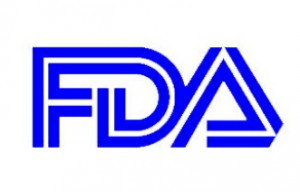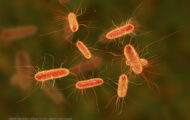How much caffeine should be allowed in food, beverages and supplements? In August 2013, the Institute of Medicine (IOM), an independent nonprofit organization, held a public workshop on that topic at the request of the U.S. Food and Drug Administration’s (FDA). Today the IOM issued a 164-page summary about the workshop. The report does not make recommendations, but describes the risks associated with caffeine consumption and explores safe levels of consumption.
 The workshop was prompted by the sudden boom in caffeine-added products including gum, candy, snacks, energy drinks, supplements and bottled water. A safe level of caffeine has never been determined for those products. The only time the FDA has approved the use of added caffeine was for cola. That was in the 1950s.
The workshop was prompted by the sudden boom in caffeine-added products including gum, candy, snacks, energy drinks, supplements and bottled water. A safe level of caffeine has never been determined for those products. The only time the FDA has approved the use of added caffeine was for cola. That was in the 1950s.
“In the last ten years, the marketplace has seen an influx of caffeinated energy drinks and a wide range of foods with added caffeine,” said FDA Commissioner Michael Taylor. “We are especially concerned with products that may be attractive and readily available to children and adolescents, without careful consideration of their cumulative impact.”
Some products have raised concerns. In 2010, the FDA warned several companies that adding caffeine to alcoholic beverages was unsafe and those products were removed from the market. Energy drinks have also been associated with a number of adverse health effects. A study published in the Journal of the American Medical Association found that these products are often mislabeled and do not accurately report levels of caffeine.
Taylor said that since the IOM workshop, the FDA has “engaged in a dialog with industry, consumers and the scientific community on a number of options to address this important public health issue. We appreciate the voluntary restraint that some companies have shown as we continue to investigate safe levels of caffeine consumption.
“With public safety as our top priority, we also continue to investigate each adverse event report we receive on energy drinks and other caffeinated products. We have just recently moved to an online adverse event reporting system for dietary supplements that will make it easier for the FDA to detect dietary supplements that pose risk for a range of reasons, including excessive levels of caffeine.”




